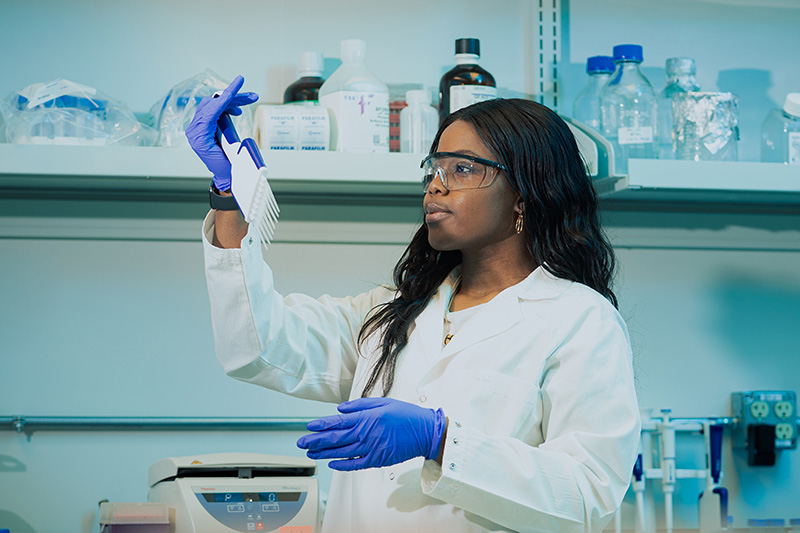
Biomolecular Engineering: How Technology Innovates the Field
Biomolecular engineering is an interdisciplinary field that combines principles from biology, chemistry, and engineering to develop new technologies for healthcare, energy, and other applications. With advances in technology, biomolecular engineering is rapidly evolving and expanding its potential to address some of the world’s most pressing challenges. Here, we’ll explore the latest technological innovations in biomolecular engineering and hear from two experts about their potential impact.
One of the most significant technological advances in biomolecular engineering is the use of CRISPR-Cas9 gene editing technology. CRISPR-Cas9 allows scientists to make precise edits to DNA, opening up new possibilities for the treatment of genetic diseases, the development of new therapies, and even the creation of new materials and chemicals.
AsDr. Eva Byrne, a biochemist and one of the pioneers of CRISPR-Cas9 technology, says, “CRISPR-Cas9 has the potential to revolutionize medicine and other fields by allowing us to make precise edits to genetic material. With this technology, we can correct genetic mutations, develop new drugs, and even create entirely new materials with unique properties.”
Another technological innovation that is driving innovation in biomolecular engineering is the use of microfluidics. Microfluidics is a field that involves the manipulation of small volumes of fluids, typically on the scale of microliters or nanoliters. By using microfluidics devices, researchers can perform high-throughput screening of thousands of samples in a short amount of time, allowing for faster and more efficient development of new drugs and materials.
As Dr. David Rogers, a biomolecular engineer and pioneer of microfluidics technology, says, “Microfluidics has the potential to accelerate the development of new drugs and materials by enabling high-throughput screening of large numbers of samples. By automating the process of experimentation, we can greatly reduce the time and cost of developing new treatments and materials.”
In addition to CRISPR-Cas9 and microfluidics, other technological innovations are also driving innovation in biomolecular engineering. For example, advances in synthetic biology are allowing researchers to engineer cells to produce new materials and chemicals, while advances in nanotechnology are enabling the development of new diagnostic and therapeutic tools.
As Byrne says, “The field of biomolecular engineering is constantly evolving, and new technologies are emerging all the time. By combining advances in genetics, engineering, and other fields, we can develop new solutions to some of the world’s most pressing challenges.”
However, as with any technological advancement, there are also concerns about the potential risks and ethical implications of biomolecular engineering. For example, the use of gene editing technology raises questions about the potential unintended consequences of altering genetic material, while the use of microfluidics and other high-throughput screening methods raises concerns about the use of animal models and the potential for overreliance on automated experimentation.
As Rogers says, “As with any new technology, it is important to consider the potential risks and ethical implications of biomolecular engineering. We must work to ensure that these technologies are used in a responsible and ethical manner, and that the benefits they provide are shared equitably.”
Biomolecular engineering is a rapidly evolving field that is driving innovation in healthcare, energy, and other areas. With advances in technology such as CRISPR-Cas9, microfluidics, and synthetic biology, researchers are developing new solutions to some of the world’s most pressing challenges. However, as with any technological advancement, there are also concerns about the potential risks and ethical implications of these new technologies. Whether biomolecular engineering ultimately leads to new breakthroughs and solutions remains to be seen, but its potential impact is undeniable.


